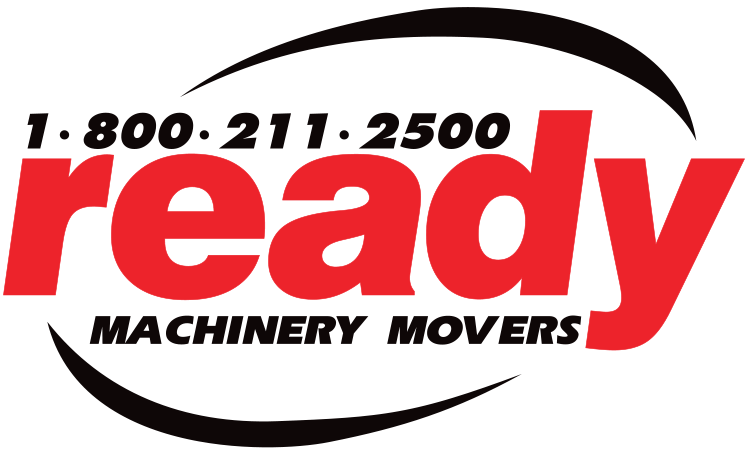A trailer is a valuable asset and purchasing one is a smart investment. As in any investment, you need to protect your trailer through regular maintenance. A clean and well-maintained trailer will achieve its optimum performance, which leads to increased efficiency in your operations. The time and money you pour into maintaining your trailer will have a significant return on investment. Preventing costly repairs and extending the lifetime of your trailer requires observance of routine maintenance.
You can perform basic maintenance jobs yourself, like checking tire pressure, cleaning your trailer, replacing broken light bulbs, and ensuring all moving parts have sufficient lubrication. But for more complex tasks like spot welds and brake repairs, you may need to contact a specialist in trailer maintenance.
Here are some trailer cleaning and maintenance tips to ensure your trailer is in continuous service in 2020 and beyond.
Minor Trailer Maintenance Tasks
Smaller trailer maintenance and repair jobs are things you or your team can accomplish. These tasks don’t require complex tools or technical know-how, and you can perform them with your hands. Below are some tasks you can take on yourself:
- Cleaning
Washing and cleaning your trailer is the most basic maintenance task you can accomplish to ensure your equipment is in good condition. This has to be done on a regular basis, which means each time the body or chassis has mud or dust deposits that need cleaning.
All you need for cleaning tasks is a simple solution of water and detergent. A bucket, hose, and brush could also come in handy. Avoid using brushes that have stiff bristles or pressure washer if you own an enclosed trailer with an automotive finish. High pressure could damage the body of your truck.
- Lubrication
Your trailer is composed of moving parts that create friction as they interact with one another. To minimize friction, proper lubrication is crucial. This reduces the chance of wear and tear, which could eventually lead to failure. Choose the right lubricant and apply it properly. When applying lubricant on sealed components (e.g. wheel bearings), you will need a grease gun for added pressure.
Door and gate hinges only require light-duty lubrication. For this purpose, you can use spray application of white lithium or graphite. Unlike regular grease, white lithium doesn’t trap road grime. Make sure to move the joint back and forth when spraying on hinge points to allow the lubricant to work inside.
- Tire maintenance
Tires could be very costly to replace and repair, so they need due attention. Your tires need proper air pressure to last longer. Always verify your system pressure is in the correct setting. Check your regulator pressure once every quarter and your power fuse every month. Your system shut-off valve has to be checked each time there’s a visual inspection of your trailer. Also check your tire for tire wear. This can be caused by a faulty suspension, undercarriage, axle alignment, or shock absorbers.
- Light bulbs
Ensure your brake lights, taillights, and turn signals all work. Burned-out lights can be dangerous, and you could get pulled over/fined for having defective lights. Faulty light bulbs can be caused by dead lamps or a wiring issue.
- Wiring
If your lights don’t work as they should, even when your bulbs are in good condition, you may have a dirty wire connection. A thorough cleaning can fix the issue. This can also be a result of a loose connection which can be addressed by tightening or crimping the wires.
- Frame and body
You may need to do straightforward repairs to the frame and body of your trailer when the need arises. This will involve tightening loose bolts or fasteners. Examine your trailer from top to bottom, end to end to spot signs of loose parts. Other signs include squeaking or rattling sounds while you’re under tow. For this task, you will need combination and socket wrenches.
- Internal inspections
Check for damages like holes in the roof. They can cause leaks that may soon damage your cargo.
- Security
During maintenance, remember to inspect the chains, tie-down straps, ratchets, and winches. Repair any tears, holes, cuts, rusts, snags, embedded particles, or loose stitching in the straps. Lubricate the winches and ratchets to keep them in good condition.
More Substantial Repairs
Bigger and complex trailer repair jobs require professional help. Avoid doing repair and customization jobs on your truck that can likely affect its legal compliance to road and safety regulations. Expert trailer service and repair providers are adept at substantial modifications for trailer trucks that don’t compromise road safety standards. Contact the professionals to protect your investment.
Below are some repair jobs that you should entrust to a trailer repair specialist:
- Brake repairs
Do-it-yourself brake repairs can be dangerous. If there’s something wrong with your truck’s brakes, it’s best to contact a professional right away. They are equipped with the right knowledge and specialized tools to do the job fast.
- Suspension repairs
A bad suspension can affect your ability to control your trailer truck, especially when turning or stopping it. Many trailer suspensions are built with a leaf spring system, a set of string steel components that are under tension. Attempting to unwind suspension parts on your own may put you at risk of injuries. Leave this job in the hands of the expert. Call the professionals when you already feel every bump on the road or when bumps cause your truck to “bounce.”
- Coupling repairs
The trailer tongue and hitch components ensure that your rig is safely attached to your towing vehicle. They ensure that your trailer doesn’t suddenly detach when under tow. When not in use, it’s best to unhook your trailer from the towing vehicle. A trailer specialist can make sure that your equipment stays attached and comes off safely when needed.
- Breakaway system repairs
Your trailer’s breakaway system is built to bring your trailer to a safe stop. It activates your trailer’s electric brakes in case the trailer gets suddenly disconnected from the tow vehicle while driving. Make sure your electric brakes are operational, fully charged, and the switch cable attached to your truck before hitting the road. If it’s damaged, call for a repair service.
Routine cleaning and preventive maintenance should be your top priority in 2020 to prolong the lifetime of your trailer truck. However, when you need additional trucks for relocation purposes, contact a moving and transportation company that specializes in heavy equipment.
Ready Machinery Movers has the manpower and fleet of hydraulic trailers to help you with your relocation needs. Our team can also assist with any maintenance and repair jobs of heavy machinery and equipment.
For inquiries, call us at 1-800-211-2500. You can also send us an instant message for quote requests.
